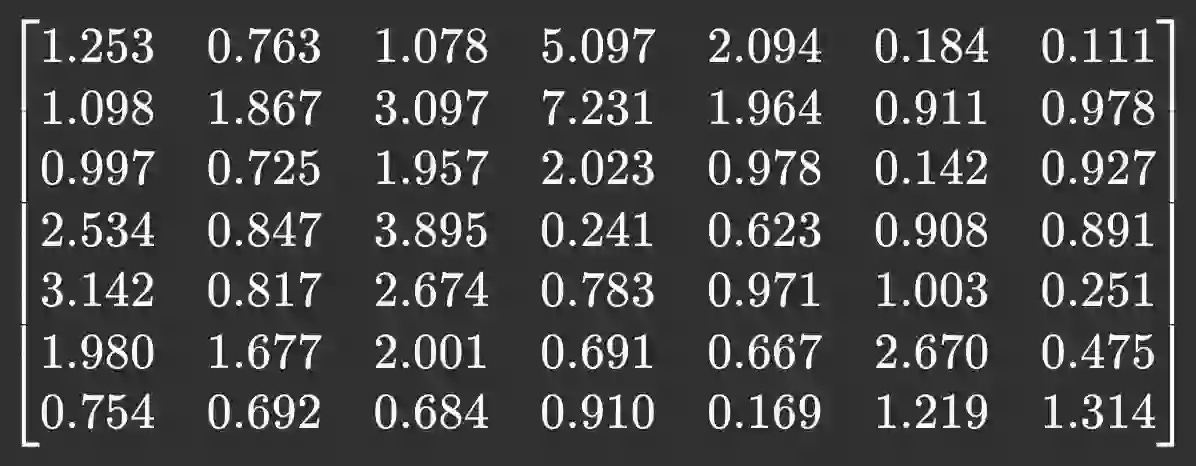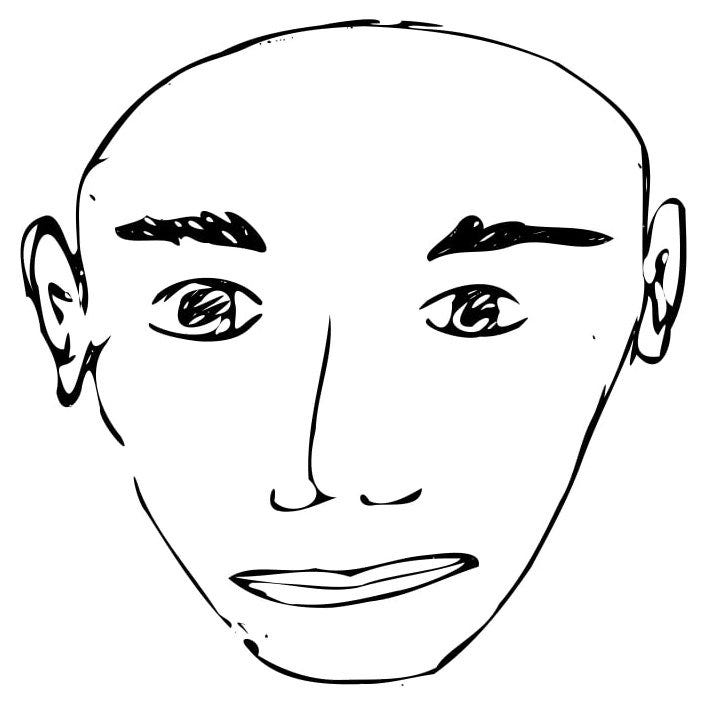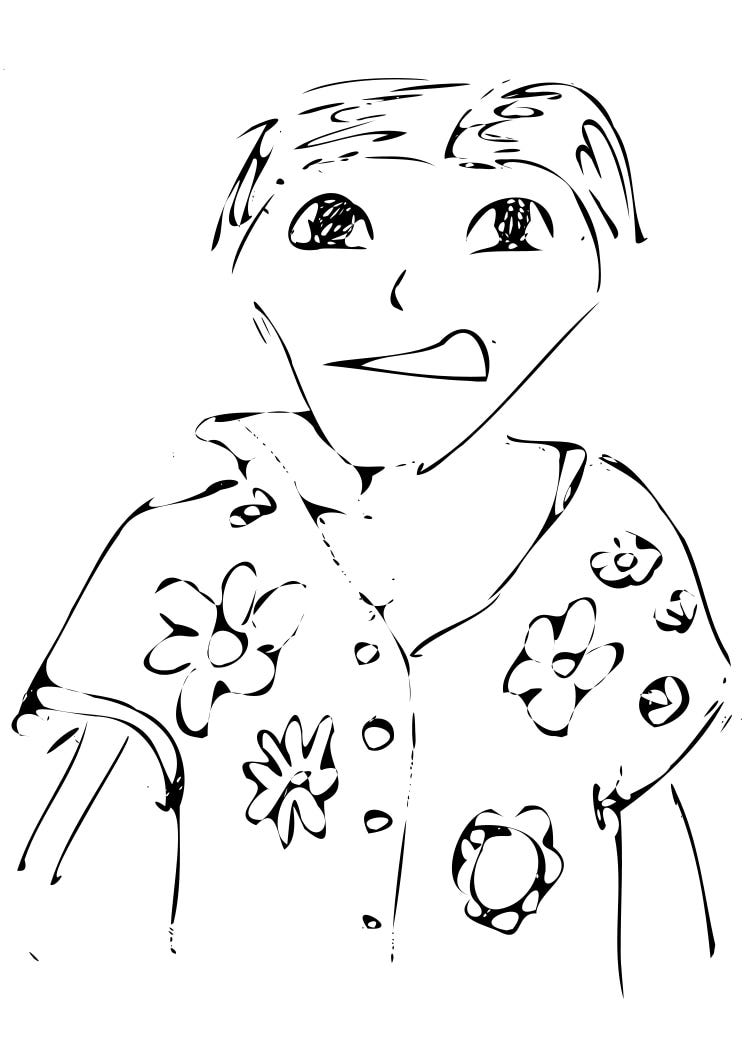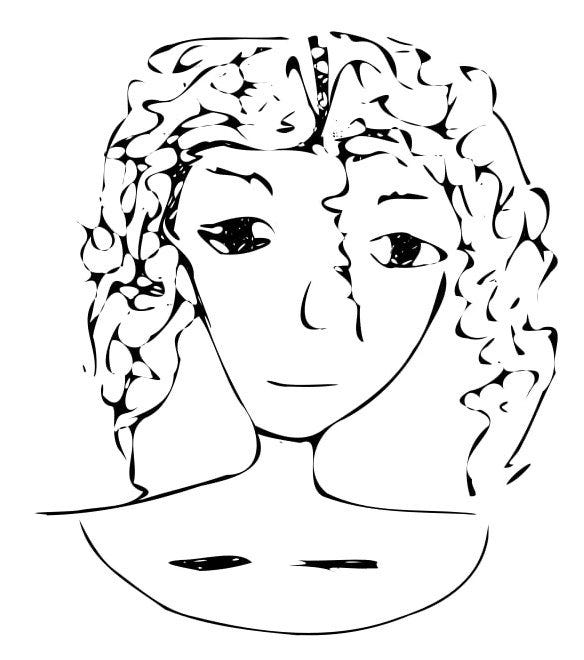How can you get from Avignon (in Provence, (where the "herbs de Provence" come from (yes, I nest brackets (deal with it (if you can read this sentence (you're basically a Lisp programmer)))))), Provence is in the south-east of France (near Italy)) to Castillon La Bataille (south-west (near Bordeaux))?
Buying a Train Ticket in France from 1938 to 2022
Between 1938 (Creation of the SNCF: France's railway institution) and 1970, they priced tickets on a per-kilometre tariff for the whole rail network. This scheme was called Tarif Equalization, based on the "principle of commercial fairness": everyone should pay the same price per distance travelled. The cost of a ticket was
Where C is a constant dependent on passenger type (First Class/Second Class/Child) that converts meters to Francs.
The French ruling class's ideas about economic policy and public services started to change in the postwar period. It was considered important for the SNCF to pay for itself rather than relying on public subsidies to balance its books. Furthermore, the car was taking off as motorways were built, and the railways no longer had a monopoly on transport. Therefore, the SNCF had to use more creative means to become profitable than simply hiking up the price of tickets.
Ideas change relatively slowly, so it was only in 1970 that things would change. The catalyst for this change was the building of the high-speed rail network (TGV), a project that was announced in 1966, the bulk of which was undertaken in the 70s. So the government needed a way to fund these super fast trains. The first step toward a profitable railway system was the addition of a constant to the pricing formula: now, tickets would cost
In 1979, the SNCF went a step further, and the price became
Where delta t is a seasonal parameter: there were three 'seasons', and the parameter increased and decreased if the season was a hot season to travel in.
In 1981 the price became dependent on the time of day, and you could pay to reserve a seat.
Where N is a factor that is 1 in normal times and 1.2 in peak times, and R is the cost of reserving a specific seat.
This way of pricing tickets is financially more efficient for the SNCF, but it was criticised by the trade unions, who saw it as "class tarif setting". Now, the poor could no longer travel during peak times with the rich. Some unions emphasised that ending the per kilometre price was a divorce from the historical foundations of the principle of fairness in rail transport.
Nowadays, the French government enforces some ticket price restrictions but otherwise allows the SNCF to run itself like a business. This means they are free to price their tickets like this
Each one of those big W terms represents a large rectangle full of little numbers that look like this:
But even bigger!
This thingy is an 'intelligent' formula, optimised to squeeze every dollar it can get out of its pool of consumers while satisfying state-imposed boundary conditions.
In the opinion of a senior civil servant from the late 2000s
we used to receive an Excel document. We would open and glance at it, that's all. We wouldn't check anything. … I don't see why the state should control prices either. For me, a large part of the SNCF's operations, like the TGV, are like the private sector. … The state should behave like a shareholder.
This is an economically liberal attitude (at least by French standards), and it's the current government's attitude.
What about the future?
Everyone wants clean, green, efficient, affordable transportation, but no one wants to pay taxes for it. The question is: How do we get that?
New technology presents us with an opportunity to make things more efficient, but we must think now about what it is we are trying to optimise. If we go with the economically liberal 'hands off' approach, the railway companies will end up setting prices to whatever makes them the most money, which may or may not be desirable. The more I think about this, the more I realise I have no idea how the economy works.
Anyway, the ticket pricing algorithm wasn't feeling very generous when I checked the train ticket website the day before my trip, so I decided to hitchhike to Castillon.
Hitchhiking across Southern France
Unfortunately, I forgot to take selfies with my drivers. Instead, I've illustrated them from memory: I am no artist, so they might not be exact representations, but hopefully, their characters shine through.1
The Michelin Man
My first driver was a large man with beady black eyes and inflated limbs. He looked like the Michelin man. I gathered from the insults he threw at all the other drivers that he was one of the best drivers in the world. I had to hand it to him: his driving style was quite unique; I've never felt so much g-force in a car before.
We overtook all the incompetent drivers who obeyed the speed limit from both sides. Sometimes he would slow down and coast alongside one of the cars he over-took to glare at the poor driver in the other car. "Aller putin de merde! Casse toi salope!" He swore a lot, and we listened to 50 Cent, a rapper who also swore a lot. I kept an eye on the speedometer and observed that we had been going well over 140 km / h in a 90 zones.
He took me from Avignon to the entrance to the A9. "Come on! Fucking shit! Move bitch!" He dropped me at a red light near the entrance of the motorway. "It was very nice knowing you, Stephen. Take care now, and I hope you have a safe journey!"
Pascal
My second driver was a travelling salesman man named Pascal. He told me that four or five times in a row. He repeated almost everything he said four or five times at different volumes. Grey stubs coated his chin and head, his lower lip bulged outwards, and his eyelids sagged about a centimetre below aesthetically pleasing. He looked somewhat like my internal image of the hunchback of Notre Dame.
His story wasn't prettier than his appearance: His wife divorced him ten years ago, supposedly because his job meant he had to travel all the time. He had no children. He told me his girlfriend is a stripper who takes him to "bisexual orgies" in Lyon. He said he liked to consume an unholy mix of alcohol, weed and stimulants when he went to orgies. I tolerated this conversation for a while to see where it would lead.
"Promise me you'll try a bisexual orgy, Stephen," he said, stretching out his hand for me to shake. "Sure," I said sarcastically, leaving him hanging ", they sound really wholesome." His hand dropped, and he made to grab my crotch, but, after all that weirdness, my guard was up, and I blocked his pathetic arm with my left one; his fingers groped around a few centimetres above my privates then, with the help of my right arm, I shoved them back onto his side of the car where they belonged. I suppressed the strong urge to smack his dangling lip into his crooked teeth, which would have been foolish as we were on the motorway.
I told him to drop me at the next exit, and he did with an apology, albeit not very genuine.
Said
My third driver was an engineer named Said, who worked for a large German manufacturing company. He was much calmer than my first two agitated drivers, and I felt I could relate to him as a salaried technical person. He told me the French government planned to phase out fuel cars by 2035. "It's all well and good for the rich... What am I going to do when I visit Morocco? My car will be useless after a few hundred kilometres."
He told me he's considering going to Canada for a couple of months to improve his English. He was surprised to learn from me that the French and English-speaking Canadians don't get along as well as you might hope: I told him the Franco-Anglo situation was similar to Belgium's Walloon-Flemish situation.
Mark
Mark wore a blue and red Hawaiian t-shirt and had a blue and red bracelet to match. He was an impulsive and spirited man.
"I don't have aircon," he said, closing the windows, killing the lovely, lovely breeze. We were at the height of the heatwave, and the temperature was 40 degrees Celcius. "Sometimes, you have to overheat to appreciate coolness. You know, it's like that; sometimes, you must put a stone in your shoe and walk a few miles." He was full of truisms and funny French idioms.
Mark worked in importing and refining Chinese agricultural produce, especially products derived from ginseng. He was on his way for a swim in the river and a camping weekend with his friends. I helped him by typing a few dictated messages to his friends, and then he got a call in which his friend inquired about some weed he was bringing to the party.
"Yeh, Steve, I'm getting high today!" Mark bellowed after hanging up the phone. "You know Steve... I'm divorced, and I have two kids. Every second week I act like a dad, but I regress to teenagehood on the other weeks!"
Lydia
Lydia wore her hair short and dyed silver with black roots, her expression was sober, but there was also kindness in the corners of her eyes. She had an air of toughness and pragmatism mixed in with youthful curiosity. "I've never taken a hitchhiker before," she said, shooting me a sideways glance.
Lydia is a police officer. "The problem is that here in France, the laws protect criminals, not the police." She recently moved to a small town down in the south and said she feels she's retired. "It was hard to adapt to this peaceful town. I used to work the night shift in Paris banlieue. Every night was hard work."
I've never known a cop before, but I grew up around people who don't think highly of cops, so when she told me she was a cop, I had to confront some of my prejudices. Lydia was lovely, and I felt bad for judging her as a cop. I didn't need the concept of "cop" coming and interfering with my perception of her, but it did a bit.
We talked about martial arts, and I told her some travel stories. She offered me a cigarette which I accepted to deepen our camaraderie. I didn't want to deny her that little moment of intimacy that smokers have together.
When she dropped me off, she offered me more cigarettes, "go on, take them, take more, take half the pack." I begrudgingly took two, and then she stuffed another ten into my hands. I used them for barter later that night.
Quentin
Quentin brought me along another short leg. He was a drummer, delivering a special drum set to a friend who was a drum collector. I didn't know people collected drums. He was nice, but we didn't really click, and the conversation remained superficial.
His name wasn't Quentin, but I called him Quentin by mistake in the car; he let out a short laugh, correcting me, "Not bad. I wouldn't mind being called Quentin, like Quentin Tarantino." He said. I forgot his actual name.
Maelle
Maelle brought me to Toulouse. Her outfit matched her curly black hair, and her collar bone rested elegantly above a loose c-neck. Her warm smile was inviting, and I trusted her instantly.
We stopped at a gas station, and I got us ice cream to cope with the heat while she filled the tank up. The ice cream was my breakfast. In fact, I didn't eat anything else that day. I had filled up on potatoes covered in melted cheese and vinaigrette the night before so as not to get hungry on my west journey. The ice cream was welcome since it was so hot, and we had no air conditioning in the car (40 Celcius = 104 Farenheight). (Unlike the Mark-ride, we kept our windows wound down.)
Maelle works with kids in troubled situations. Sometimes she brings them on hikes and camping trips. I suspect that's just what they need. She told me it's not all fun and games, though, and that there are days she thinks she's had enough and wants to quit.
I think these jobs are hard work but nourishing for the soul. I've noticed how these lines of work have positively affected family and friends. I told her as much, and she agreed that it had taught her a lot.
I could relax in her presence, so once the conversation died off, I took the opportunity to admire the French countryside and process some of the day's encounters.
Larz
After an hour and a half of sticking my thumb out at an eight-lane paying booth, an austere man pulled up in a hybrid Lexus and took a moment to look at me before asking, "where are you going?" (my sign read "A9-Ouest").
"I'm going to Bordeaux", I replied.
He paused again, then said, "I'll take you there," eyeing me with paternal suspicion. It took a while to gain his trust, but we got there eventually. He got me talking about physics. He wanted to know how waves propagated, so I explained how sound propagates in solids and gasses. Since we had a long way to go, we had time to go beyond a superficial explanation. He asked good questions to get to the root of his misunderstanding. When my initial description was insufficient, he asked how different sound waves had different frequencies, which gave me the chance to go at it from a different angle. I drew diagrams on my notepad, and we had a good time. We talked about the bang that happens when you break the sound barrier and the doppler effect.
After about an hour, although we hadn't nearly exhausted the subject of waves, I'd had enough of talking and felt the need to shift the burden of generating content to him. Changing the subject, I inquired about the book on his dashboard entitled Comment La Renaissance Peut Sauver Le Monde. (How the Renaissance can Save the World.) The basic thesis, which Lars agreed with, is that professionals are over-specialised in their training and that everyone ought to be more well-rounded. He thinks people should aim to understand the frontiers of science, be able to talk intelligently about politics and grow their own crops too. He also feels that over-specialisation breeds weakness on the global economic scale. Because of the delicate web of agricultural trade, a war in Ukraine will raise the price of corn or wheat, which could have cascading effects on the world economy and might, for instance, end up causing a famine in Africa if a vulnerable country's trade partners implement greedy agricultural export laws.
As we approached Bordeaux, it suddenly started to rain heavily, and I worried about getting drenched while trying to find a place to stay. However, the rain stopped just before we entered the city centre, and the streetlights reflected beautifully on the wet cobbles. When we parted, Lars told me they call Bordeaux "La Belle Dormante" (Sleeping Beauty).
La Belle Dormante
Lars dropped me by the river near the town centre at 10 pm. The sky dimmed slowly. I changed my shoes, and people pointed me to the nearest hostel.
The hostel was full of 15 y-o boys on some sort of school trip. They set off the smoke alarm, and we all had to evacuate. Their swarm-like behaviour reminded me of David Attenborough's aquatic life scenes.
I went to a bar and had tonnes of fun dancing to techno with some Bordeauxlaises for two hours. I was psychologically exhausted from the hitchhiking, so I danced freely without reserve or much alcohol. On my way back to the hostel, I was accosted by two hooded figures who followed me home.
"Wanna get some of this stuff...?"
"No"
"Why not? Why don't you tell me where you're going then? Hey, why are you ignoring me, man? I just wanna know where the party's at."
When I got back to the hostel, I hung out with a couple of staff and long-term tenants for an hour longer on the balcony, which was about half a floor's height off the ground so that we had a good view of the street but were just out of reach of it. I hid behind my identity as a foreigner-hitchhiker and didn't mention that I went to university or worked as a programmer.
The cleaner was a few years older than me; he was Arabic and very entertaining. He filled the silence of the night with anecdotes and armchair philosophy as he rolled dozens of cigarettes and joints for later and imminent consumption.
"Those Jackles are back. Don't they have something better to do than intimidate tourists?" he said, referring to three hooded figures standing over three seated german ladies.
We all (me, the cleaner, the Bask receptionist, an African guest who lives here and studies at a university in Bordeaux, a country boy from near Marseille who's in Bordeaux looking for work) kept an eye on the "Jackals" as they went about their business: stoping and surrounding any loners walking bye, probably sizing them up to see if they would be easy to mug... who knows, I should give them the benefit of the doubt because they didn't mug anyone, at least not in view of us; perhaps stopping and surrounding people in a dark street at 1 am is just their way of expressing hospitality.
Meanwhile, the conversation moved on to the hostel's guests.
"I'm fucking sick of people treating me without respect and then having to clean up their shit-stains when they miss the toilet." said the cleaner, raising his voice. "Without me, they wouldn't have a place to sleep."
He was indignant when I told them about my encounter with Pascale earlier today. "The problem with this country," he said, licking the rolling paper seal shut around another fat joint, "is that they treat indecency as if it were an illness. These creeps ought to be rotting in jail, but they're not because they're labelled 'sick'." I thought about how these words strangely—
BANG! BANG! BANG!
A sound like three gunshots went off from just below our low balcony. I was jerked into alertness and found myself on my feet. The others remained seated as though nothing abnormal had happened. It was only some bangers\*\*\*, presumably thrown from a hostel window above us. Soon after that, the receptionist, the cleaner and the student investigated the incident, and the country boy and I went to bed. As I was drifting off to sleep, they burst into my room to tell the country boy, with whom I was sharing a room, that they had figured out who it was and that it had something to do with one of the long-term tenants who has been running his drug dealing business from our hostel. They were excited because they thought they had gathered sufficient evidence to be able to kick him out for good.
Chateau Brandeau
For the last leg up to Chateau Brandeau from Castillon La Bataille, a lovely lady of Moroccan origin gave me a ride from near the station. She was driving her three girls to the nearby lake for some relief from the heatwave. Their ages roughly followed a geometric pattern: ~2, ~5, ~13, ~36. Naturally, she was cautious about letting me into her car full of children, though I also wondered if it had anything to do with the fact that we are in Le Pen country. When she stopped and accepted for me to enter the car, I stupidly went for the back door, where the younger kids were, and she stopped me authoritatively, "uh uh, you sit in the front." The oldest daughter stepped out, and I got in the passenger seat.
She was extremely tense at first, but I was in such a joyous and talkative mood that we soon became friends. I told her a bit about the cousins I was on my way to visit and what it was like to live in Canada. Like Lydia, she tried to force me to take some of her stuff when she dropped me off, but I refused gracefully. "No, I can't. I'm not hungry—that food is for you; you packed it, especially for your picnic. No, I'm fine, thanks. I don't like orange juice. I have water. Thanks so much for the ride, though! No, I'll be okay. It's only a short walk from here."
Finally, I arrived at the vineyard, Fern, Andrea, and this lovely dog.
Route
Thanks, Leontien, for suggesting I modify the sketches with software. Initially, I extracted an SVG path with Inkscape’s brightness / edge-detection algorithms and then simplified the paths. Unfortunately, substack doesn’t allow the SVG, perhaps because email clients don’t render them? So I put them back into jpg to upload them. As you can see, I had fun with some of them. Lydia’s image is exacted only using an edge detection algorithm. The others are mostly brightness detection and smoothing from simplifying the bezier curve path. I found this reduced their size by 50 to 100 x, making them much prettier.




















I really enjoyed reading your post! Where did you find information about how prices are computed at the SNCF?